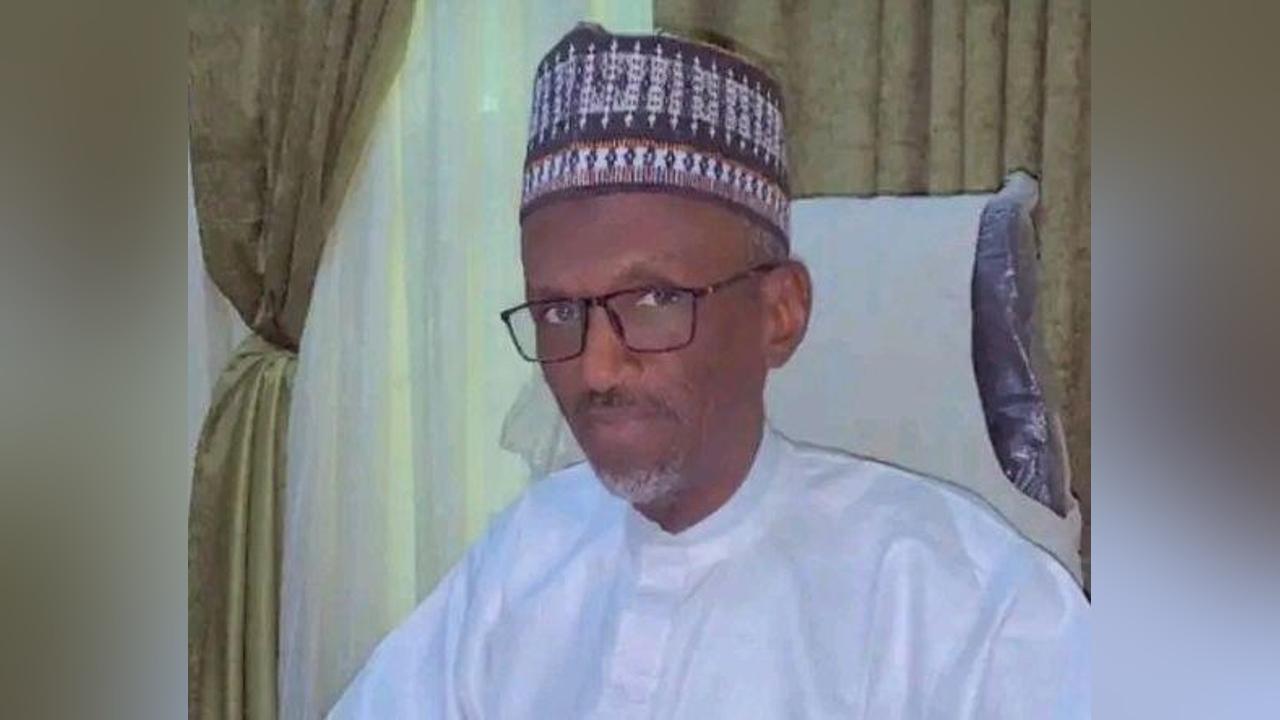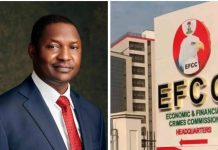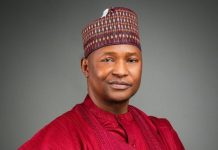Abba Hamisu Sani
Africa-Press – Nigeria. Dr. Sa’id Ahmad Dukawa is a renowned political analyst and lecturer in the Department of Political Science at Bayero University, Kano.
The political scientist reflected on the recent position and pledge made by Peter Obi, the former Labour Party presidential candidate in 2023 and a stakeholder in the opposition coalition under the ADC. Obi stated that he would serve only one term if elected President of Nigeria in 2027.
Dukawa described the statement as a sign of desperation to gain power. He also agreed with the position of the Arewa Consultative Forum, which labeled the former Anambra State governor’s pledge as a political strategy.
The stance of the former Labour Party presidential flagbearer, which has generated divergent views, is among the political developments that have attracted significant attention from both politicians and analysts.
The interview also examined the possibility of Nigerian politicians keeping to their promises—something Dr. Sa’id expressed doubt about.
He, however, drew a comparison between Obi and South Africa’s Nelson Mandela, whom the Nigerian politician frequently references, particularly regarding serving only one term and the lasting impact he made.
How do you interpret Peter Obi’s pledge to serve only one presidential term if he wins the 2027 elections? Can such promises be trusted in the Nigerian political landscape?
In the first place, Peter Obi’s pledge to serve only one term carries an implicit assumption that a single term is superior and preferable to two terms. This is a flawed assumption. The framers of the Nigerian Constitution were fully aware of both options—they could have chosen a single five-, six-, or even ten-year term. Instead, they opted for a renewable four-year term. This decision was based on a valid observation: when someone knows they must seek re-election, they are more likely to perform well in the first term. This has been evident in our democracy.
The idea of a renewable term is more relevant and applicable to us than a single-term system. Just consider what President Tinubu is doing during his first term—more specifically, in the early part of it. He is behaving as though he does not intend to seek a second mandate, and it is quite astonishing.
Imagine if he were certain he would not return for a second term—the extent of what he might do would be concerning. I am referring here to the ethnic inclinations of the President, the way he channels development projects to his region of origin, the South-West, and the pattern of appointments that favor the Yoruba ethnic group, contrary to the provisions of the Nigerian Constitution, which prohibits such favoritism. This has made many citizens feel marginalized and believe that one section of the country is being favored over others.
So, imagine if he were certain that he only needed one term and wouldn’t have to return to seek another mandate.
“I think this assumption is wrong in the first place, and even if some people prefer it, I doubt they are in the majority,” the analyst stated.
In light of past experiences—such as former President Muhammadu Buhari’s pledge to serve only one term before seeking a second—how realistic are politicians’ promises in Nigeria?
We cannot trust Nigerian politicians based on experience. They have ways of changing their minds and going against their promises. It’s just a matter of crafting a story—saying that their intention was to serve only one term, but due to overwhelming pressure and claims of performing well, they need a second term to complete the achievements they started. That’s how it usually ends. So, no one should take such promises at face value.
As for President Muhammadu Buhari’s pledge, I cannot recall him ever pledging to serve only a single term. But even if he did, you can see how politicians crafted a campaign narrative that he even intended to resign before the end of his first term, but due to pressure from Nigerians—supposedly because of the great things he was doing—he didn’t.
The Arewa Consultative Forum (ACF) described Obi’s statement as a “political strategy.” Do you agree with this characterization? Can Obi’s pledge be considered a tactical move to attract voters?
To that end, I can say the Arewa Consultative Forum is right in describing Obi’s statement or pledge as a political strategy. I totally agree with them. Anyone who is desperate for power can pledge anything they believe will appeal to the people or voters. As I said, it is an implicit assumption—and it is a wrong one—because no one told him that one term is preferable to two terms in the Nigerian political context
Some argue that comparing Obi to Nelson Mandela is an exaggeration. Do you see any real similarity between them in terms of circumstances, challenges, and political environment?
With regard to his claim of wanting to be like Mandela—or anyone else he wishes to emulate—that is his personal aspiration. However, it is up to Nigerians to assess whether he has met that standard.
If we look at what Mandela did in South Africa regarding apartheid and the white minority—how he forgave, drew a line, moved forward, and tried to unite the people—and compare that to what Peter Obi did as governor of Anambra State, particularly how he treated northerners as outsiders and even issued a warning, in fact a policy statement, requiring northerners to carry identity cards in his state, then we see no basis for comparison. If experience is anything to go by, this is what we can recall from his time as governor,” Dukawa said.
Do you believe there is enough public awareness in Nigeria to hold politicians accountable for their promises if they go back on them?
I don’t want to underestimate the level of public awareness among Nigerians, even though many people tend to do so. I don’t want to fall into that trap. When you look at the discussions happening on social and mainstream media, you’ll realize that Nigerians are quite aware. They are very conscious that politicians have failed them. They talk about it deliberately and have made several attempts to bring about change—especially in 2015, when they staged a near-revolution by unseating the incumbent government and electing someone they believed would be a change-maker. But they ended up disappointed.
Similarly, if you consider the 2023 election, despite all the outcry about the role of religion in politics, Nigerians still voted consciously.
I think I will not underestimate Nigerians. They will understand Obi’s pledge for what it is—a mere politician desperate to gain power to do what he wants. There is nothing on the ground to indicate otherwise,” the political analyst stressed.
Realistically speaking, is a single term sufficient to implement meaningful reforms in Nigeria? Or could this weaken Obi’s ability to plan for the long term?
One term of four years in Nigeria—when we look at how Tinubu and his administration are handling matters, now halfway into the first tenure—politics has overtaken administration. In other words, there is little to talk about in terms of policy compared to the amount of political activity taking place.
I’m not sure that one term would be enough to deliver, because within the first two years, there will already be intense campaigns for a successor. Therefore, you may end up with only a year and a half of actual governance or policy implementation. So, it will certainly not be adequate—especially if limited to four years.
Only if it were extended to five or six years might it become feasible. But I don’t expect, nor do I hope, that Nigerians would accept any constitutional amendment that would take the country backward to a single-term system. The makers of the constitution did their calculations well, and you cannot fault them—we need two terms, and not more than eight years.
For More News And Analysis About Nigeria Follow Africa-Press







